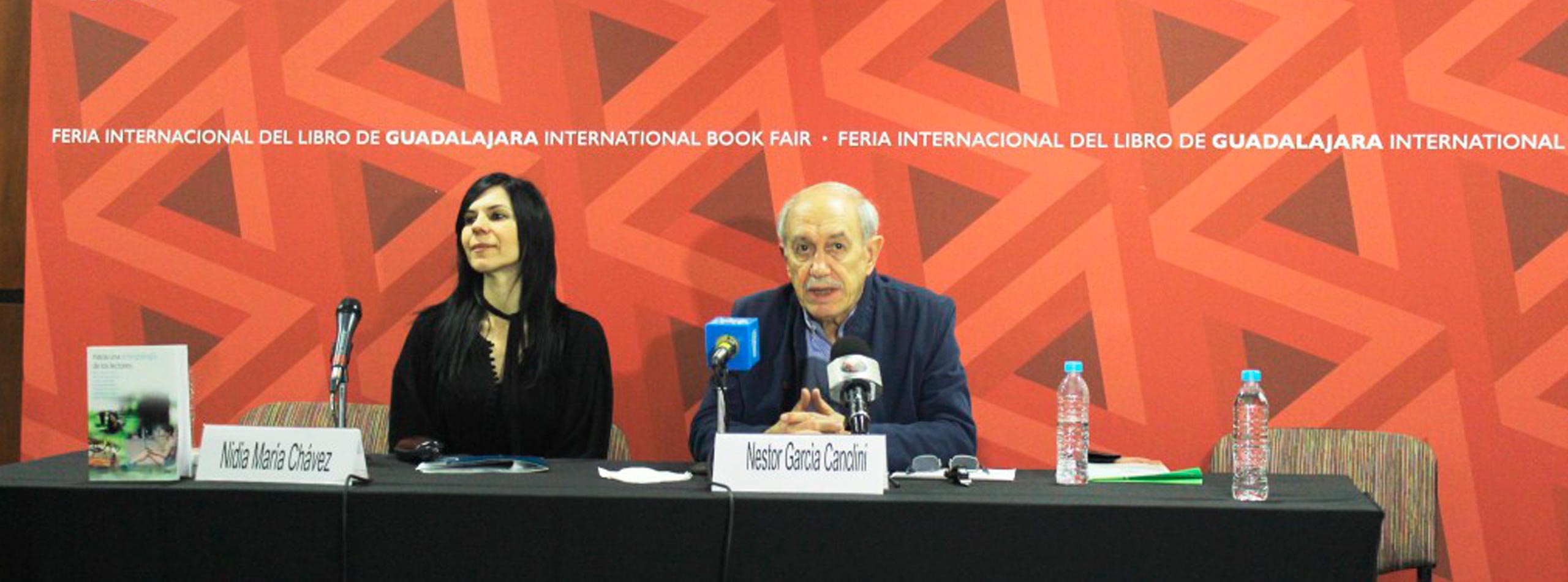10.12.2015
Fundación Telefónica Mexico presents «Hacia una Antropología de los Lectores» at the Guadalajara International Book Fair
Last November, at the Guadalajara International Book Fair (FIL) 2015, Fundación Telefónica presented Hacia una Antropología de los Lectores (Towards an Anthropology of Readers), a book on the research conducted by philosopher Néstor García Canclini on new ways of reading, primarily by electronic means.
Fundación Telefónica Mexico presents «Hacia una Antropología de los Lectores» at the Guadalajara International Book Fair

Fundación Telefónica presented Towards an Anthropology of Readers, a book on the research conducted by philosopher Néstor García Canclini on new ways of reading, primarily by electronic means.
The content of this research, which was conducted with the support of Fundación Telefónica in collaboration with the Autonomous Metropolitan University and the publishing company Ariel, analyses the transition from libraries, reading rooms, book clubs and book fairs to an increasingly digital reading culture.
During his time at the FIL, García Canclini highlighted the fact that although there has been a drop in the sales of printed books and periodicals, this does not necessarily mean that people are reading less or that what they are reading is concentrated in conventional media such as newspapers and magazines, but that new forms of reading have emerged such as images with text, emails and text messages.
In this respect, the lecturer at the universities of Stanford, Barcelona, Buenos Aires and Sao Paulo added that this research focuses on the experiences of readers rather than the actual number of books they read, examining different age groups, the places where people read, and whether they read as a group or individually. In particular, the book studies the reasons why we promote the habit of reading in our everyday lives.
Philosopher Néstor García Canclini believes that new technologies are essential tools in modern life and key elements in the intellectual growth of our young people. He also notes that it is necessary to understand the different habits we use to inform, entertain and communicate in order to understand the digital culture we are immersed in today.
As part of the seminar activities, Fundación Telefónica – which took part in the FIL for the fourth consecutive year – presented commendations to the teachers of five Jalisco schools which benefited from the Aulas Fundación Telefónica (AFT) programme (Telefónica Foundation Classrooms), a scheme to promote digital skills through technology classrooms.
Download Hacia una Antropología de los Lectores free of charge here.